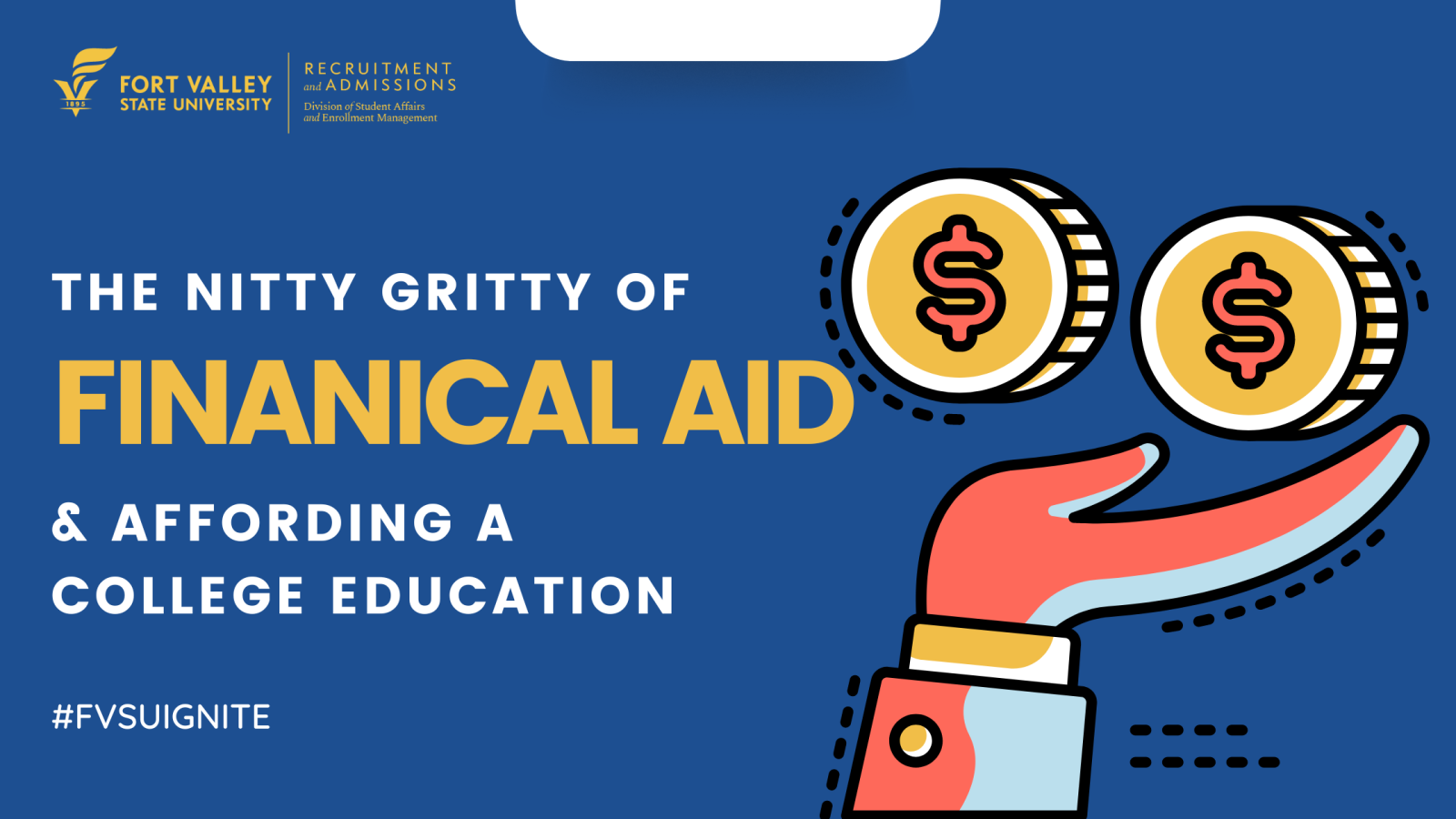FVSU Ignite Hub: Sparking Futures, Igniting Potential
The Nitty Gritty of Financial Aid and Affording a College Education
by Alex Thomas
Executive Director of Recruitment & Admissions
Posted on March 29, 2024 7:45 AM

It's an essential investment of your time, financial resources, and energy. Treat it as such throughout the college search process to prevent frustration in the future.
- Alex Thomas, Executive Director of Recruitment & Admissions
Every spring, millions of college students across America wait patiently to receive their financial aid award notifications for the upcoming academic year. This year is vastly different, with drastic changes to the FAFSA and subsequent processing delays across all US colleges. Affording a college education can seem intimidating at first glance, but here are some tips and advice on navigating the process and taking control of your educational journey.
- View your college education as an investment…because it is. It's easy to become preoccupied with all the excitement surrounding starting college, such as making new friends, having more independence, and living in a new environment. However, don't lose sight of the fact that, for many of us, college is the first time where your education is not provided for free. It's an essential investment of your time, financial resources, and energy. Treat it as such throughout the college search process to prevent frustration in the future. This may entail researching the costs of attendance, having honest conversations with supporting parents or family, and making sure to meet any critical financial aid-related deadlines.
-
Don’t rely solely on snagging a “full ride” scholarship while ignoring smaller merit scholarships that are widely available. I’ve met far too many students who chase the highly competitive “full ride” scholarship awards from a lengthy list of colleges and universities. While I encourage students to apply for as many scholarships as possible, it may be more challenging to apply for ultra-competitive merit scholarships than local outside scholarships. Research the civic organizations and businesses in your community, such as service organizations, religious organizations, Greek letter organizations, banks, utility companies, and insurance companies. Pay attention to the outside scholarship opportunities. These are often more accessible due to the number of applicants and are an excellent opportunity to network with organizations and businesses for future opportunities.
-
Gain financial literacy on all your available options, including student loans. Student loan debt is a widely debated issue that affects an estimated 43 million borrowers, including myself, currently in America (Forbes, 2023). Student loans can be a viable option if you have a financial need after any eligible scholarships or grants are received. However, I highly recommend educating yourself on what to expect if offered federal student loans. You will be required to complete Entrance Loan Counseling and sign a Master Promissory Note. In this legally binding document, you agree to repay your loan plus accrued interest after completing your degree. Take the time to read the conditions regarding the loan and contact our Office of Financial Aid if you have questions before financial aid is disbursed. Becoming financially literate can be an empowering experience, but one that can only happen if you take the initiative to be responsible for your financial aid.
-
Consider working part-time while you are enrolled in college. A part-time job can be an excellent way to offset college tuition and fee costs. It can help you gain employable skills that will benefit you after college and provide an income that can be used for living costs and school supplies. Students can connect with the university’s career and professional development services to find jobs on-campus, off-campus, and careers after graduation. A few hundred dollars per month can help you pay the remaining tuition and fee balances, especially if you have an interest-free payment plan with the university.
-
Control the "controllables." Ultimately, you must ensure your financial aid and payment options are intact when you enroll. Check your new campus email inbox regularly, and complete all deadlines to ensure your college experience. Refrain from relying entirely on a parent or guardian to submit your FAFSA or verification documents. Due to the federal Family Educational Rights and Privacy Act (FERPA), you must consent to a third party, such as a parent or guardian, before the university can release any financial aid information to them after enrolling. Becoming more independent, taking on more responsibility, and problem-solving are all essential to foster your transition to adulthood.

ABOUT ALEX THOMAS
Alex Thomas, currently serving as the Executive Director of Recruitment and Admissions at Fort Valley State University since September 2021, brings a wealth of experience in college admissions garnered over several years. Hailing from Moultrie, Georgia, Alex began his professional journey as an admissions counselor at Fort Valley State University before assuming roles such as Assistant Director of Admissions and Athletic Recruitment at Mercer University and Assistant Director of Freshman Recruitment at Georgia State University. Notably, he spearheaded a team at Georgia State University that achieved a 13% increase in first-time freshmen enrollment from Fall 2020 to Fall 2021. Actively engaged with the National Association of College Admission Counselors (NACAC), Alex completed the Admission Middle Management Institute in 2019, honing his strategic skills in college admissions. Holding a bachelor's degree in political science and a master's degree in public administration from Valdosta State University, Alex Thomas is dedicated to shaping the educational journeys of aspiring students.
Leave a Comment